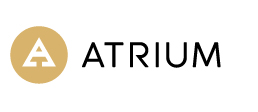Organic & Non-GMO Ingredients
The label for derived natural cosmetic ingredients based on ISO 16128
Atrium’s organic formulations follow the criteria set out in ISO 16128 which was introduced in September 2017. The standard comprises guidelines on definitions for natural and organic cosmetic ingredients and offers a framework to determine the natural content of ingredients as well as formulations. According to ISO 16128, to receive a natural origin rating the natural part of an ingredient must be greater than 50%.
The ISO standard aims to harmonize definitions for natural and organic cosmetic ingredients in order to provide greater transparency for manufacturers and consumers, and to date it is the only internationally recognized standard to do so.
Independently verified natural cosmetic ingredients and sustainable manufacturing processes
According to a broad Mintel report, over 86% of millennials – people born between 1980 and the mid-1990s – find claims involving the presence of natural ingredients and the absence of artificial additives to be highly influential. This generation tends to be suspicious of green and natural claims following rumors of “greenwashing”. They are comfortable with technology, using it to access information and make informed product choices. To enjoy consumer confidence, natural claims must therefore be backed by transparent, trustworthy labeling.
Our ingredients' Verified Natural label – don’t just take our word for it
Verified Natural is Atrium's label for products manufactured with care for the environment and respect for natural resources. It is reserved for ingredients whose starting materials are verifiably natural. Their production methods follow the same rules on processes and solvents as those for organic ingredients.
For plant-derived ingredients, this means that the initial crops may be cultivated in a conventional way, but each of the processing steps is regulated by standards such as those of the independent certification bodies ECOCERT, COSMOS, or NATRUE. As a matter of course, these norms include areas like waste management and energy management, just as they do in certified organic production.


